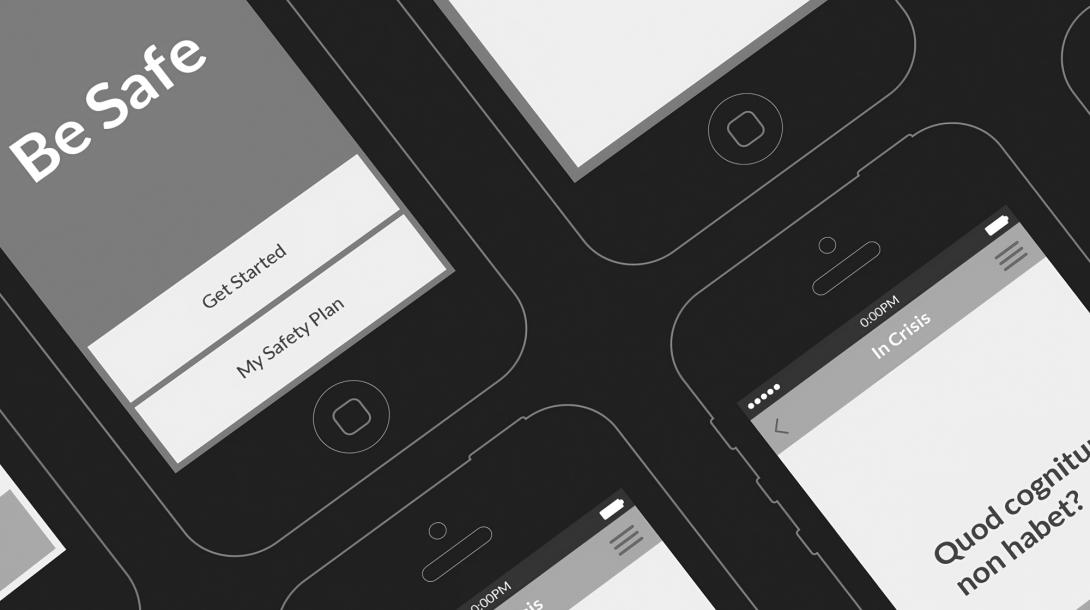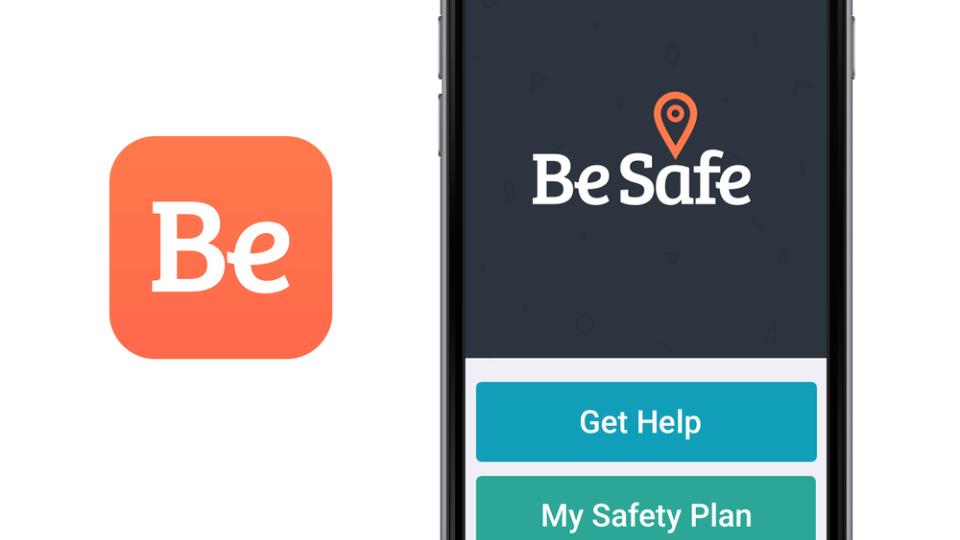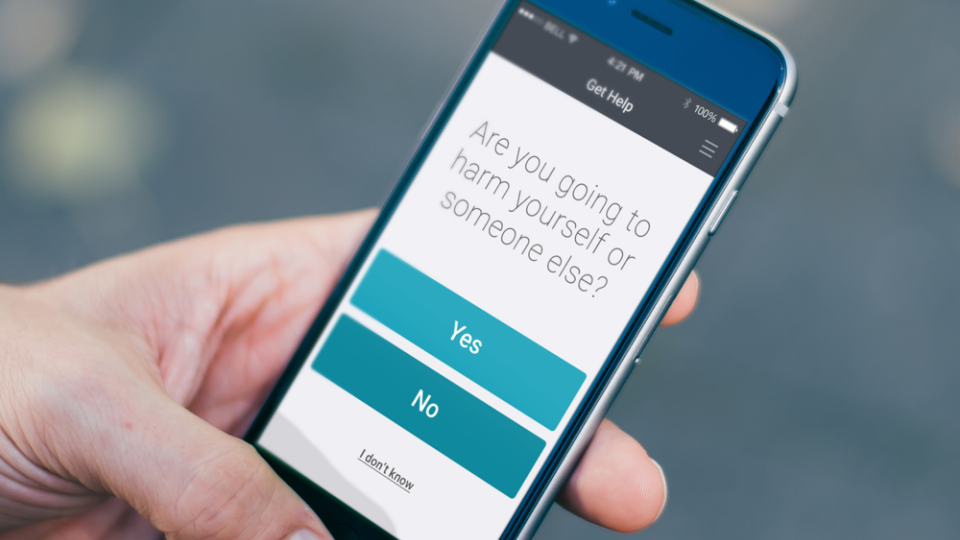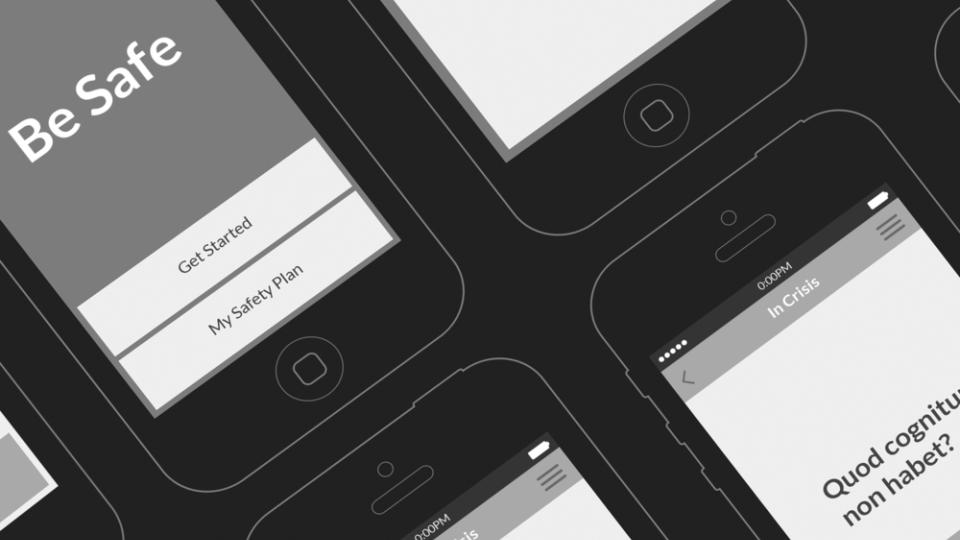Mobile Applications for Mental Health
It’s a single, simple word. But it may be the one that someone can’t get out in the middle of a serious mental health crisis. That important insight was the seed for BeSafe, an app co-created by mindyourmind and rTraction.

Creating BeSafe:
An App for Teens in Crisis
“Help.”
It’s a single, simple word. But it may be the one that someone can’t get out in the middle of a serious mental health crisis.
That important insight was the seed for BeSafe, an app co-created by mindyourmind and rTraction.
Let’s start with some context. Every day in London, and around the world, young people find themselves in crisis. When it’s a mental health crisis, the skills that we rely on to get ourselves through most crises are often ones that we can’t access. Understanding this, Melissa Taylor-Gates, Social Media and Project Coordinator of mindyourmind, and Maria Luisa Contursi, mindyourmind’s Program Director, set out to find a solution.
mindyourmind is an award-winning, non-profit mental health program that engages youth, emerging adults, and the professionals who serve them, to co-develop reliable and relevant resources to reduce the stigma associated with mental illness, and increase access and use of community support, both professional and peer-based. The organization uses a unique model of youth/adult co-creation, where youth teams are core to their work.
And for many youth, their constant companion is a smartphone. So the question became, “How do we create a tool to help youth through a mental health crisis using the devices that they’re most likely to have with them?” As a member of the mindyourmind youth team said, “Have you seen a young person without a cell phone in their hands? Me neither.”
Working with Taylor Holden, the Youth Lead in Partnership Development, and seven other dedicated youth team members, many of whom have personal experience with mental illness, the mindyourmind team, including Melissa, Maria Luisa, Youth Projects and Volunteer Coordinator Heather Miko-Kelly and Research and Evaluation Lead Christine Garinger, set out to understand what young people needed. Also involved were staff from CAMH’s SISC project (who also provided funding).
The first version of BeSafe was released in 2013.
The app has evolved since its initial release. Currently, the BeSafe app provides a “Be Safe Plan,” a form that users can fill out in advance to refer to when they are in crisis. This plan includes key personal information (such as name and address), medication they’re taking, and some personal coping strategies. The app also includes a personalized “Get Help” script, with details of the user’s personal information that they might want to share with professionals or other support staff times of need or crisis. When handed to an emergency room healthcare provider, these details have the power to change the ER experience for someone whose crisis has left them unable to communicate. Being able to hand a treatment provider all of your medical and contact information when you can’t talk changes you from an “uncooperative patient” to someone who is working to the best of your ability with the healthcare professional.
The BeSafe app also has a decision tree, in which the user responds to questions about their immediate circumstances (e.g., whether they or someone else is in danger) and their mental and emotional state. Based on these answers, the app suggests appropriate local resources.
This local customization is an exciting development in the evolution of BeSafe, allowing youth all over Ontario (including Wallaceburg and Sudbury, to name just two places) to use the app. There are currently 14 regions covered by BeSafe, each with partners from those communities. For all of us—the mindyourmind staff and youth teams, and those of us at rTraction—knowing that the app is helping youth well beyond London has been particularly gratifying.
We’ve also recently released BeSafe as a native app, meaning that it was built specifically for iPhone and Android, not created on another platform and rejigged to work on those devices (as the app was originally created). James Harquail, our mobile developer, joined the rTraction team specifically for work like this. He built the iPhone and Android versions for those devices, making them more responsive and easier to use. He says that many of the improvements aren’t immediately obvious, but result in a better experience and flow for the user—factors that are particularly important when that user is in crisis.
Because of the input of the youth team members, the app has been designed for its users. While this is the development goal for all of our work, this project was personal for the youth team members, and the opportunity to listen to youth who have lived through mental health crises made it personal for all of us. All of our projects are important, but knowing that we’ve helped to create a tool that can save lives has touched us in a unique way. And it’s made the rTraction team, some of whom have struggled with our own mental health issues, profoundly grateful to have been part of this project.
rTraction president David Billson sent out an eloquent e-mail after a mindyourmind summit in late September.
“It was remarkable to hear about the project from their perspective.... In particular, the young student Deana [who brokered the tool’s development and the partnership with mindyourmind back in 2012] was particularly proud. As a young person still in school, starting out her career, she is able to say she led part of a team that worked on an app that won an award for social good. The youth that get involved with mindyourmind are typically those who have struggled with mental health issues. Imagine how the rest of the youth team feels knowing they were part of that.
The things that we do touch the lives of others in ways that we don't always fully understand, anticipate or understand. The people we deal with... we're able to positively impact their life, career, stress level and success factors by producing a great product at the end of the day.”
We’re honoured to have worked on BeSafe with mindyourmind, the Centre for Addiction and Mental Health (CAMH), and Systems Improvement through Service Collaboratives (SISC), and use our skills with technology to create community, bridge gaps, and help save lives.
“When I’m not using the app for personal resource or to help a friend, I’m showing it off while gushing about the life changing experience of working with some of the most powerful minds in our community.”
— MINDYOURMIND YOUTH TEAM PARTICIPANT



